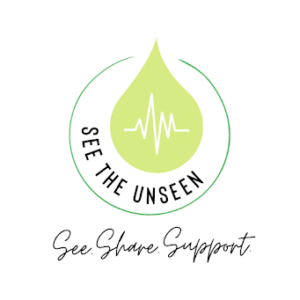By Faith Fugar, Jenna Khazoyan and Grace Nix
In the last few years, many of us have read the tragic stories about children in Uganda getting abducted and forced to fight as soldiers or about trafficking rings in Southeast Asia, in which some individuals sold their own children for profit. However, we, as U.S. citizens, live in the land of the free where slavery is a thing of the past—or is it?
According to experts for organizations like Free the Slaves, modern-day slavery (or human trafficking) is still a prevalent issue worldwide. Slavery today can take many different forms depending on the specific cultural and societal contexts, but the moral dilemma at hand is that this crime denies its victims of their most basic human rights.
Not all of us are called to fight on the front lines, but the choices we make each day can make an impact. From making informed, ethical purchasing choices to reporting suspicious behavior to the national anti-trafficking hotlines, we can all play a part in ending this injustice. In a familial context, it is imperative that we teach future generations to value and respect every human life.
Slavery—as it existed centuries ago and in the many forms it takes on today—is a threat to humanity. It is a crime that flourishes by degrading human beings and treating them as if they were mere commodities. To combat this dehumanization, it is crucial that we speak up as a nation and take informed, deliberate actions.
Slavery is not limited to some distant population living overseas; it is happening today, in our own country. In 2015, the Polaris Project found that human trafficking occurred in all 50 states. Beautiful Dream Society, a nonprofit that fights human trafficking in Oklahoma, offers services for individuals who are exploited.
The types of exploitation include, but are not limited to, construction work, entertainment, domestic work and commercial sex.
Even if we are not intentionally creating the demand for illicit services, our everyday choices play a huge part in prolonging the injustice of modern slavery. For example, the U.S. Department of Labor and the International Labor Organization have found that many of the products we buy on a daily basis (such as coffee, cocoa, electronics, cotton clothing, etc.) were harvested, mined, or produced by slaves working overseas.
In response to this global issue, President Obama signed bill H.R.644 Trade Facilitation and Trade Enforcement Act of 2015 in February, which closed the loophole in the Tariff of 1930 that previously allowed products of slave labor to be imported into the U.S. This bill, which went into effect March 10, will allow our government enforcement agencies to investigate companies that are suspected of using forced, indentured and child labor.
Even though America is taking steps in the right direction, there are things that we can do in our own communities to combat human trafficking.
Dr. Martin Luther King Jr. once said, “Our lives begin to end the day we become silent about things that matter.” So, as the nation that proudly claims to be the land of the free and the home of the brave, will we be remembered for using our resources to empower others, or will we go down in history as the ones who ignored the plight of the oppressed?
Faith Fugar, Jenna Khazoyan and Grace Nix are seniors at Oklahoma Christian University.
The opinions of guest columnists are their own and do not necessarily reflect the opinions of the Talon or Oklahoma Christian University. Guest opinions are presented to foster public debate on important topics and comments should be respectful and signed.














Be First to Comment